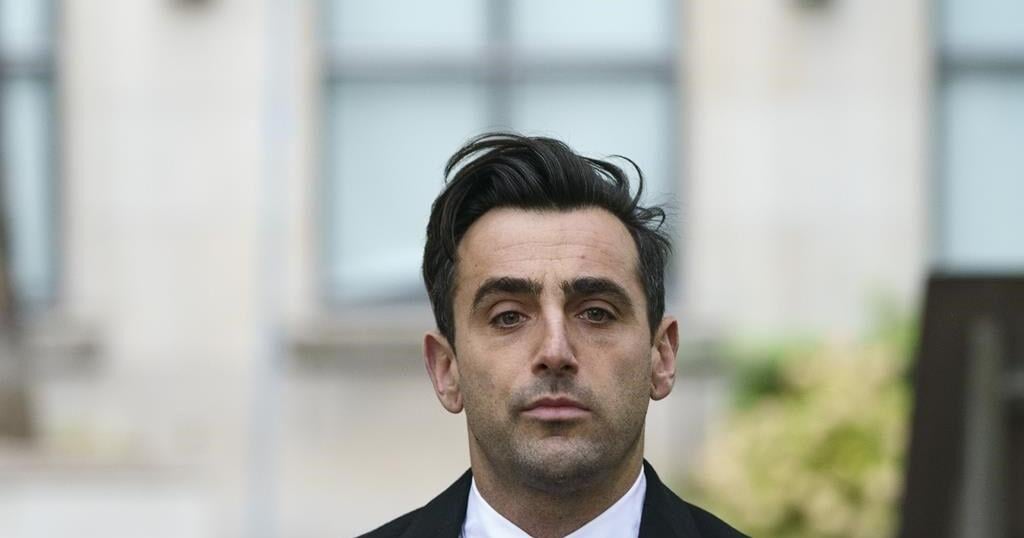HAILEYBURY, Ont. – The judge overseeing the sexual assault trial of Canadian musician Jacob Hoggard has begun delivering his final instructions to a northeastern Ontario jury today.
Ontario Superior Court Justice Robin Tremblay is laying out the legal principles jurors must apply as they consider the evidence heard in the nearly two-week trial.
Jurors are expected to start deliberating once his instructions are complete.
Hoggard, 40, has pleaded not guilty to sexual assault. The charge stems from an incident alleged to have happened on June 25, 2016, in Kirkland Lake, Ont.
Lawyers for the Crown and the defence each made a final pitch to the jury on Thursday.
Both sides agree that a sexual encounter took place in Hoggard’s hotel room after a concert and bonfire after-party, meaning the case has centred on the question of consent.
The complainant and the singer both took the stand during the trial. The woman, whose identity is protected under a standard publication ban, was the Crown’s only witness.
The complainant, who was 19 at the time, said Hoggard raped, choked, hit and urinated on her, and called her names like “dirty little piggy.”
Hoggard said they flirted all night, then had a consensual one-night stand.
Defence lawyers for the singer suggested Thursday the woman lied about the nature of the encounter to cover up her infidelity and maintain the support of those around her.
They further argued her account of what happened that night was rife with inconsistencies, with several details changing over time.
Prosecutors argued the woman had no reason to lie, noting there was no evidence the people in her life were aware of the incident, aside from a cousin who accompanied her to the concert.
The Crown disputed some of the alleged inaccuracies in her testimony, including details about the vehicle she rode in on her way to the bonfire.
Prosecutor Peter Keen acknowledged there were some inconsistencies on “peripheral details” of her account but argued she remained “unshaken” on the core elements of her allegations.
This report by The Canadian Press was first published Oct. 4, 2024.

























